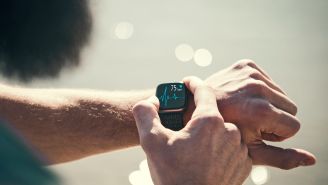Atrial fibrillation is one of the most common types of irregular heartbeat, or arrhythmia. It’s estimated that this condition, often called AFib, affects between three and six million people in the United States alone. The incidence of atrial fibrillation is expected to increase as the population ages. By 2050, up to 12 million people may be affected.
Despite its rising prevalence, there are widespread myths about atrial fibrillation. Some people mistakenly believe that it only affects older people, while others wrongly assume that the condition always feels like a racing heartbeat.
In order to dispel these and other myths, we spoke with Kenneth Zide, MD, a cardiologist affiliated with Aventura Hospital & Medical Center in Miami, Florida. Dr. Zide, who specializes in the diagnosis and treatment of heart rhythm disorders, sheds some light on nine common misconceptions about atrial fibrillation.
Q: Many people believe that if they had atrial fibrillation, they’d feel a “fluttering” sensation in their chest, or a racing heartbeat. Is this always the case?
A: It really runs the gamut. Atrial fibrillation causes the upper and lower chambers of the heart to not work together as they should. This can affect blood flow to the lungs and the body. People with atrial fibrillation can be asymptomatic. They may not have any idea that they have the condition—even if their heart rate is actually very fast or slow. Others may be very symptomatic and feel every beat. It may not just feel like fluttering in the chest or palpitations. In many cases, people with atrial fibrillation experience shortness of breath, dizziness or fatigue. Some people also say that it feels like chest pain to them. Everyone is different. So, symptoms of atrial fibrillation may vary from one person to the next.
Q: Some people assume that heart attack is the biggest worry associated with atrial fibrillation. Is this really a common complication of the condition?
A: The most dreaded complication of atrial fibrillation is stroke—not heart attack. Heart attack is possible, but very rare. Atrial fibrillation can lead to stroke because the top part of the heart isn't contracting normally. And when it doesn't contract normally, it quivers or fibrillates. When this happens, the blood isn't moved effectively through that area, and could start to coagulate or form little clots. Those little clots can be expelled from the heart anywhere, but specifically they can go to the brain and cause a stroke. Over time, if the pulse is consistently very fast while in atrial fibrillation, it can also weaken the heart muscle.
Q: Many people blame themselves, assuming they did something to trigger their atrial fibrillation. Is there a wide range of possible causes?
A: Atrial fibrillation can be caused by a lot of things, and only some of them can be controlled. It can occur in people whose hearts have been changed over the course of time by heart attacks or various diseases. But it can also affect people with normal hearts. So, when someone comes to me with atrial fibrillation for the first time, we try to make sure that we rule out certain health issues, like thyroid conditions, heart valve conditions and structural heart problems. We also talk about habits and other reversible factors, which could include high blood pressure, obstructive sleep apnea and excessive weight. Atrial fibrillation can also develop in those with certain habits, such as heavy alcohol or drug use, including cocaine or other amphetamines. But in many cases, the cause is actually unknown.
Q: A lot of people assume that atrial fibrillation only affects older people. Does age play a role in this condition?
A: The incidence of atrial fibrillation does increase with age, but anyone could develop atrial fibrillation—even children and teenagers.
Q: It’s widely believed that pacemakers cure atrial fibrillation. These devices help regulate heart rhythm. So, can they effectively cure this type of arrhythmia?
A: This is another misconception that I get a lot. A pacemaker will not cure atrial fibrillation. If someone’s heart rate is racing, a pacemaker does not improve that. Pacemakers only deal with slow heart rhythms—not fast ones. That said, there are a couple of reasons why people with atrial fibrillation would be treated with a pacemaker. First, it is possible for someone’s heart rate to be slow and still be in atrial fibrillation. The heartbeat may be irregular, while the rate itself is slow. In these cases, a pacemaker might make people feel better, but they still have the condition. Some medications for atrial fibrillation slow the heart rate. This is another reason someone might need a pacemaker. But this device, in and of itself, does not cure or prevent atrial fibrillation.
Q: Many people assume that they can’t exercise if they have atrial fibrillation, or that they will have to give up physical activities that they enjoy. Can you put this into perspective?
A: Exercise is part of a healthy lifestyle that can help manage atrial fibrillation. If exercise enables people who are overweight to lose extra pounds with exercise, that’s helpful. Keep in mind, that some people actually have exercise-induced atrial fibrillation. These people, particularly those who experience symptoms, may need to be managed differently or more aggressively in order for them to participate in their sport or activity. So, when it comes to exercise, there is not a one-size-fits-all recommendation.
Q: A lot of people assume that atrial fibrillation and coffee don’t mix. Is coffee, or caffeine, really off limits?
A: Coffee does cause people to have palpitations sometimes, but not necessarily atrial fibrillation. There is not overwhelming evidence that caffeine leads to Afib.
Q: People with atrial fibrillation often feel that they have no control over their condition. Are their ways to help prevent these episodes?
A: Most people are able to identify at least some of their atrial fibrillation triggers, such as heavy drinking, drug use, smoking and exercise, which could help them reduce the frequency of their attacks. But atrial fibrillation may be hard to predict. Triggers may vary from one person to the next. So, it's really very individualized. This is part of what makes atrial fibrillation so frustrating for some people.
Q: After having a normal heart rhythm for a long period of time, many people with atrial fibrillation assume they won’t have another episode. Do episodes usually recur?
A: Atrial fibrillation can come and go, and some people who have atrial fibrillation don’t feel it. But when someone has had it once, we assume that it’s going to happen again. The uncertainty is not if atrial fibrillation will recur, but when. The typical progression for people with atrial fibrillation is that they go in and out of it for some period of time. Then they're in it more than they're out of it until ultimately, they're in it all the time unless we take steps to try to prevent that. And even then, there are some people who are just going to stay in atrial fibrillation. It's a chronic condition, but it can be managed with a combination of lifestyle changes, medications and possibly procedures.






